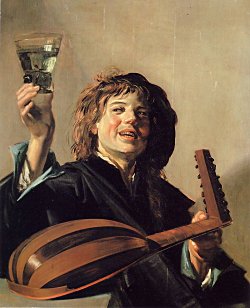
 Taking the briefest of breaks from my Lincoln reading, before taking on the newest full biography, A. Lincoln, by Ronald C. White Jr. (to be released January 13th,) I turned to Walt Whitman tonight, and his experience of the War, it's devastation's and losses, personal and public. A new book, Now the Drum of War: Walt Whitman and His Brothers in the Civil War, by Robert Roper, tells not only of the great poet, but of his family, and in particular two younger brothers who fought in the war. It is a valuable story, and well told by Roper.
Taking the briefest of breaks from my Lincoln reading, before taking on the newest full biography, A. Lincoln, by Ronald C. White Jr. (to be released January 13th,) I turned to Walt Whitman tonight, and his experience of the War, it's devastation's and losses, personal and public. A new book, Now the Drum of War: Walt Whitman and His Brothers in the Civil War, by Robert Roper, tells not only of the great poet, but of his family, and in particular two younger brothers who fought in the war. It is a valuable story, and well told by Roper.Like most American families, Whitman's was deeply effected by their experience of the War. Unlike most American families though, the Whitman family had a genius among them. While the letters, largely unknown to me before, exchanged between the brothers and with their mother and reproduced here, are poignant and very interesting, it is of course to Walt and his poems that one turns to find their experiences, and the experience of our people, memorialized in unforgettable verse.

And Walt Whitman's own experience, nursing and caring for, and genuinely coming to love the soldiers he met in the army hospitals he visited every day, as detailed in an earlier and wonderful book, The Better Angel: Walt Whitman in the Civil War, by Roy Morris Jr., produced in Whitman, our greatest poet, some of his greatest, and most heartfelt work.
So tonight I find myself reading and rereading Whitman's poems. And one poem, "A Sight in Camp in the Daybreak Gray and Dim," haunts me as I see our soldiers again in war; young, older, even my age, and for the most part never seen but in a formal photograph, in uniform, in the paper when they die. Here is Whitman's poem:
A Sight in camp in the daybreak gray and dim,
As from my tent I emerge so early sleepless,
As slow I walk in the cool fresh air the path near by the hospital tent,
Three forms I see on stretchers lying, brought out there untended lying,
Over each the blanket spread, ample brownish woolen blanket,
Gray and heavy blanket, folding, covering all.
Curious I halt and silent stand,
Then with light fingers I from the face of the nearest the first just lift the blanket;
Who are you elderly man so gaunt and grim, with well-gray'd hair, and flesh all sunk about the eyes?
Who are you my dear comrade?
Then to the second I step -- and who are you my child and darling?
Who are you sweet boy with cheeks yet blooming?
Then to the third -- a face nor child nor old, very calm, as of beautiful yellow-white ivory;
Young man I think I know you -- I think this face is the face of the Christ himself,
Dead and divine and brother of all, and here he again lies.







